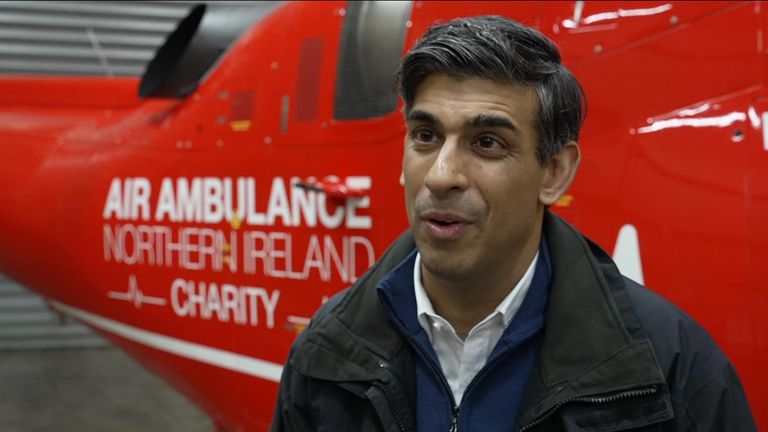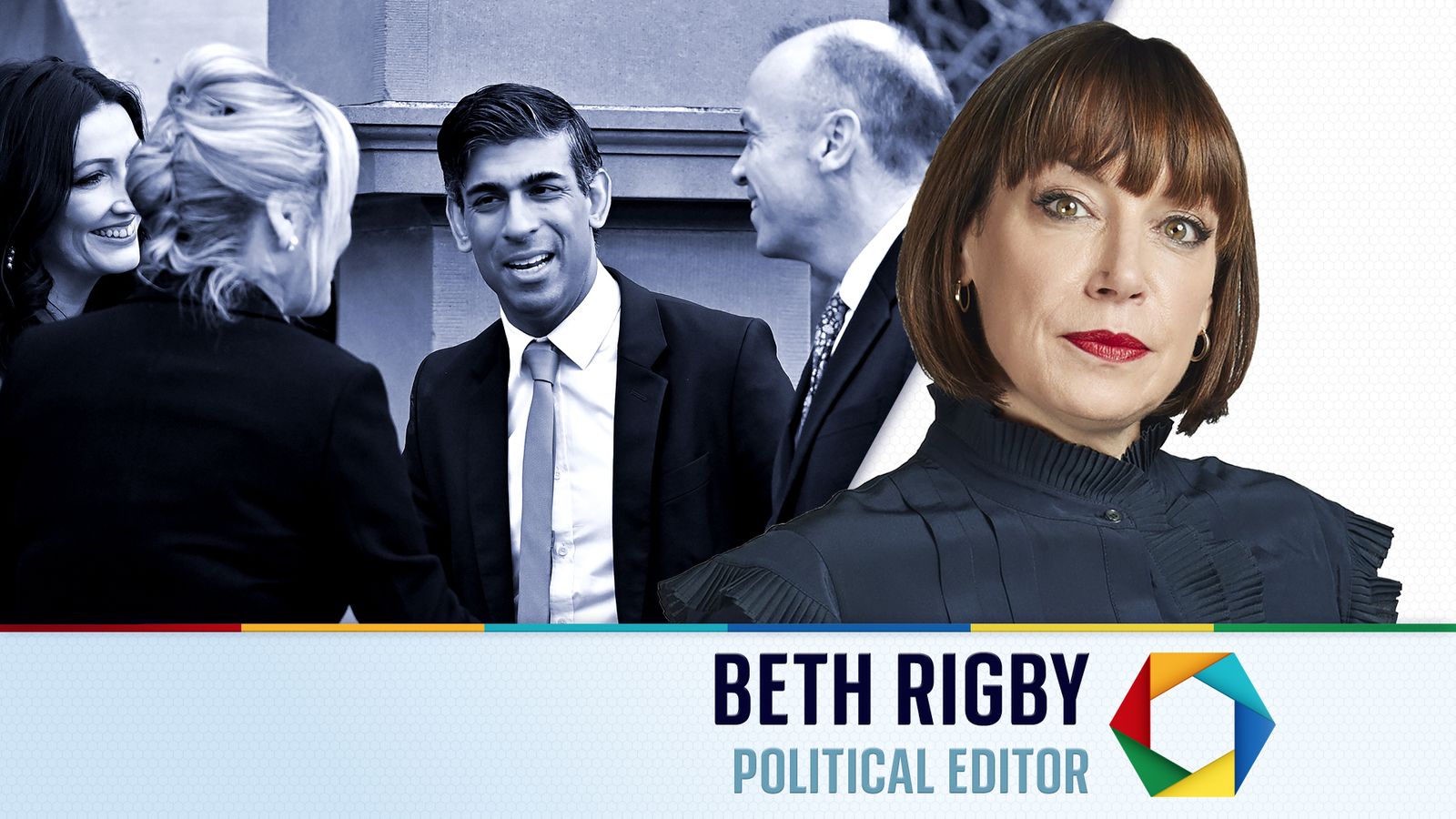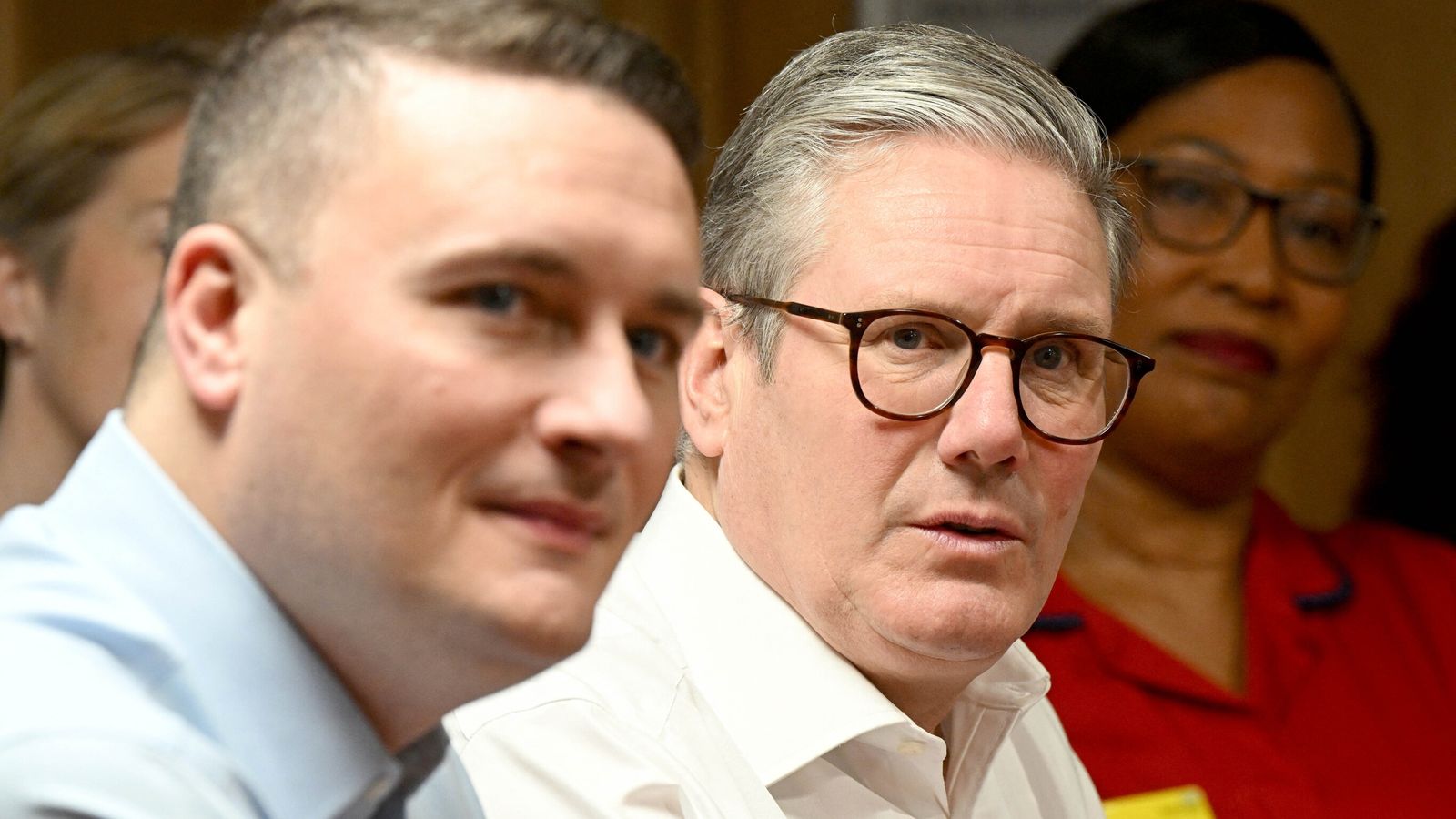
Rishi Sunak hasn’t been able to claim many successes as prime minister.
But as he arrived in Stormont at daybreak to mark the return of power-sharing in Northern Ireland, this was a victory lap he deserved to run.
Politics latest: PM wishes King ‘full and speedy recovery’
Two years to the day after the Democratic Unionist Party triggered the collapse of Stormont in a row over Brexit, the Assembly was up and running again after months of – in the words of the PM – “painstaking and patient work” – behind the scenes between the UK government and the DUP leader Sir Jeffrey Donaldson to make post-Brexit trading arrangements palatable for unionists.
The deal between the two leaders, which removed most checks on goods entering Northern Ireland from Britain, was enough for Sir Jeffrey to bring his party back to the table as the UK government published the new deal in a document called “Safeguarding the Union”, emblazoned in the colours of the Union Jack.
After two years of no government, the deal also came with £3.3bn in funding for the region which has seen its public finances pushed into the red, its public services in crisis and waves of strikes – with some 15 public sector unions on strike simultaneously last month.
With that in mind, the prime minister didn’t want to appear too valedictory, with quite a muted appearance in Belfast, consisting of photo-ops with his Irish counterpart Leo Varadkar, First Minister Michelle O’Neill and Deputy First Minister Emma Little-Pengelly.
This was before a brief visit to an integrated primary school in Belfast – where the vast majority of schools are split down Protestant and Catholic lines.
Speaking at the school, the PM described the restoration of Stormont as a “historic and important day for the country”.
When I asked him whether he, like the new first minister of Northern Ireland, Sinn Fein’s Ms O’Neill, believed a referendum on the reunification of Ireland would happen in the decade, he told me that was the wrong focus saying “everyone’s priority” is “not constitutional change. It’s delivering on the day-to-day things that matter to people.”
Read More:
What is power-sharing and why is it used?
O’Neill ‘contests’ claim Irish unity is ‘decades’ away
Questions over NI’s future can’t be batted away
Meanwhile, Leo Varadkar was also on script when asked about the future reunification of Ireland, having said last year he thought he would see this in his lifetime.
When I asked him at Stormont he avoided the question, and later told reporters the question of a border poll was “a question for another day”.
But the reality is that constitutional debate about Northern Ireland’s future now can’t be batted away.
Brexit has turbocharged questions about Irish reunification and nowhere is this seen more than the embodiment of a Nationalist first minister for the first time in Northern Ireland’s 103-year history.
For the prime minister, feeling that he has fixed a problem must be personally satisfying, although many here in the region would argue that he’s cleaning up a Tory mess, and in that sense it’s the least he can do.
Meanwhile, back in England, voters are not likely to give him much credit for restoring power-sharing in Northern Ireland when their priorities are much closer to home around the NHS, cost of living, immigration, schools.
For Northern Ireland, this is a hugely significant day as politicians here get the government back on track.
But this new chapter for Stormont looks set to be a much bigger story for the whole of Ireland.
Conservative and unionist MPs like Rishi Sunak who voted for Brexit perhaps didn’t realise quite what they would unleash when it came to the island of Ireland












